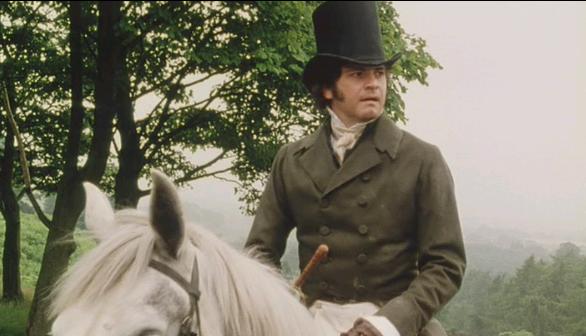As growing income inequality becomes a pressing problem, one of the unexpected hits of the past year has been Thomas Piketty’s book Capital in the 21st Century. Piketty believes that, under capitalism as it is presently practiced, the income gap between the wealthy and the rest of us will inevitably grow wider because there will always be more money to be made from capital investments than from economic growth. Therefore, those who inherit money will always be able to make more money than those who work for it. Piketty’s suggested solution is greater taxation on the wealthiest in order to redistribute the income downward.
A blog post by Tim Fernholz at Quartz takes note of how Piketty draws on Jane Austen and Honoré de Balzac to make his points. Novelists are very useful to economists because, according to Piketty, they
depicted the effects of inequality with a verisimilitude and evocative power that neither statistical nor theoretical analysis can match.
Here’s Fernholz describing Piketty’s use of Austen and the Turkish novelist and Nobel Prize laureate Orhan Pamuk. Piketty explains why, in Jane Austen’s world, the income of the wealthy is fairly predictable:
Among many things I learned reading Piketty’s book was how to understand the class dynamics of 19th century literature. The characters are always talking about their incomes, but never seem to be doing any work. Turns out that “in the novels of Jane Austen and Honoré de Balzac, the fact that land (like government bonds) yields roughly 5 percent of the amount of capital invested is so taken for granted that it often goes unmentioned. Contemporary readers were well aware that it took capital on the order of 1 million francs to produce an annual rent of 50,000 francs.”
One reason that they could be so certain about these numbers is because inflation wasn’t really part of the picture. Monetary stability lasted from the 18th century through World War I, when massive government borrowing combined with massive physical destruction to upend economic affairs. That’s the reason, Piketty says, that novelists aren’t specific about money anymore. He cites the Turkish author Orhan Pamuk, whose novelist protagonist in Snow says “there is nothing more tiresome for a novelist than to speak about money or discuss last year’s prices and incomes.”
The exception, I suppose, would be Persuasion, where Captain Wentworth is able to amass a fortune by capturing French ships. But once he does so, he settles down, buys land and makes investments, and joins the rentier class.
The self-made man is the exception rather than the rule, however, as Piketty illustrates through his use of Balzac’s Pere Goriot:
The Balzac novel that Piketty draws on most is the tale of an entrepreneur who makes a fortune in the lucrative pasta business in revolutionary France, before cashing out—”much in the manner of a twenty-first-century startup founder exercising his stock options”—to invest his wealth and give his daughters a substantial enough inheritance that they can marry well.
Was this obsession with inherited wealth just a byproduct of writerly envy from Balzac, who was perpetually in debt from failed business ventures? Not necessarily—Piketty’s data shows that inherited wealth was about 20% of national income in the France of that time. This created a nasty situation where it was impossible to work enough to match what one could earn with inheritance. In Le Père Goriot, this is made explicit through an ambitious young man, Rastignac, who comes to understand that no matter how long he works as a lawyer, he will never have the fortune he could gain by marrying a wealthy heiress.
What does that mean in practice? A society where the main standard of success is earning 20, 50, or even 100 times the average annual income. Similar standards are found in the pages of Britain’s Jane Austen, but also in the US: In Henry James’s 1880 novel Washington Square, a key plot point revolves around an engagement broken off when the dowry is only 20 times the average income, rather than 60. “It was perfectly obvious,” Piketty writes, “that without a fortune it was impossible to live a dignified life.”
It’s worth noting that Balzac was Karl Marx’s favorite novelist. Although Balzac was a monarchist—note how he added the “de” to his name to mimic nobility—Marx said he learned more about how capitalism works from the novelist that he did from the leading economists of the day. Truth trumps ideology in the hands of a great artist. Piketty shares Marx’s admiration of the reactionary novelist.
